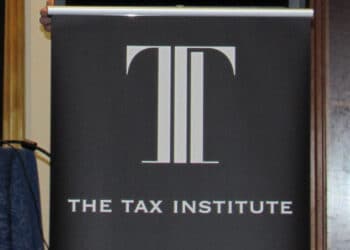Recently, there were changes made to the APES 110 Code of Ethics which address the issue of SMSF auditor independence.
Shaun Backhaus from DBA Lawyers explained that the amended code makes it clear that an SMSF auditor cannot audit an SMSF where the auditor, their staff or their firm has prepared the financial statement, unless it is a routine or mechanical service.
“They do give some examples [in the amendment standards], and they are quite routine and mechanical, I must say. These include posting transactions coded by the client to the ledger and calculating depreciation when the client determines the policy and estimates useful life and residual values,” Mr Backhaus said in a DBA Lawyers webinar.
“These are very basic, and I would suggest that the bulk of clients aren’t going to be to that sort of level, except where they do have some kind of professional experience or education in that area in order to be able to do all this, such as bookkeeping. Most, I would suggest, don’t have that experience.”
The ATO is currently taking an educative approach and plans to release further clarification on what constitutes a routine or mechanical audit.
Mr Backhaus noted that the ATO has made it clear that when they do begin to apply compliance resources in this area, they will expect to see appropriate evidence in the auditor’s file that the SMSF trustees took responsibility for the financial statements and had sufficient knowledge, skills and experience to do so.
Auditors, he said, shouldn’t assume that copies of signed financial statements and trustee representation letters amount to audit evidence that meet this requirement.
“The ATO will be looking for evidence that these particular trustees have requisite skills and knowledge. So, again if they’re accounting professionals or bookkeepers, they may have some sort of certificate or degree or perhaps a letter outlining their experience in undertaking this kind of work,” he explained.
If a trustee has qualifications and skills as a financial planner, Mr Backhaus said the firm will need to think about whether they have the requisite skills as a trustee to take responsibility for the financial statements.
“It’s a pretty high bar and a lot on auditors again, which seems to have been the way things are moving — pushing requirements on auditors to go back and get more evidence of things for their files,” he said.
“So, it is tough out there, and another thing to be aware of is that this could be the thing to stop any in-house auditing from occurring anymore, because I don’t think there will be many funds with trustees that meet that requirement.”
ASF audits executive general manager, technical services, Shelley Banton previously stated that concept of routine and mechanical has nothing to do with the types of assets in the fund and everything to do with the trustee being responsible for coding all transactions so that the service provided by the firm becomes routine or mechanical.
“In real terms, it appears that meeting the criteria of a routine or mechanical service involves the trustee providing an Excel spreadsheet containing a trial balance to the SMSF firm, who uploads it into their SMSF administration software for processing,” Ms Banton said.


